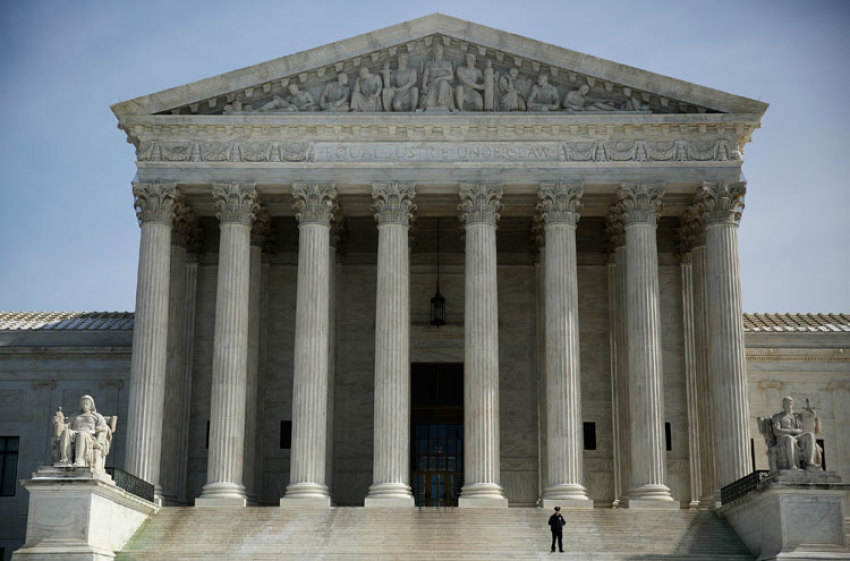Three States File Appeals With US Supreme Court Over Gay Marriage

Three states filed appeals with the U.S. Supreme Court over recent decisions declaring their state-level marriage bans unconstitutional.
Utah, Virginia and Oklahoma have filed the appeals earlier this week as numerous courts across the country consider lawsuits against the various state marriage amendments passed via referendum from 2004 to 2012.
Utah Attorney General Sean Reyes said in a statement that his duty is to legally defend the will of the state's voters, a majority of whom supported the state's marriage amendment.
"My responsibility is to defend the state Constitution and its amendments as Utah citizens have enacted them," said Reyes.
"We recognize this litigation has caused uncertainty and disruption and have accordingly tried to expedite its resolution as quickly as possible by filing our petition a full month-and-a-half before its Sept. 23 due date," he added.
Virginia Attorney General Mark Herring, who garnered headlines for refusing to defend the Commonwealth's marriage amendment, also asked the Supreme Court to weigh in.
"Throughout this case, I have fought for the fundamental rights of Virginians and the quickest possible resolution," said Herring.
"I believe the district and appeals courts ruled correctly in striking down Virginia's discriminatory marriage ban, but it has long been clear that the Supreme Court will likely have the final word."
For Oklahoma, a Tulsa County clerk filed the appeal with the Supreme Court, asking for them to review a 10th Circuit Court of Appeals' decision striking down the state ban.
"The same three-judge panel of the 10th Circuit court heard the Oklahoma and Utah cases, which were considered on a parallel track but decided separately," reported Chris Casteel of the Oklahoman.
"In both, the court ruled 2-1 that the state bans violated 14th Amendment guarantees to due process and equal protection under the law."
During the election cycles between 2004 and 2012, majorities of voters in over half the states in the country approved ballot initiatives adding a marriage definition to their state constitution.
While the language of the state constitutional amendments varied some, all called for the legal definition of marriage to be that of only one man and one woman.
Over the past several months, however, judges across the United States have declared these bans unconstitutional and a small number of attorneys general have refused to defend the bans.
Although at present gay marriage proponents have been undefeated in their legal challenges over the past several months, The Washington Post notes that the streak may soon end with an appeals court in Cincinnati.
"It became clear after three hours of arguments that the panel could become the first roadblock for proponents of same-sex marriage who have had an extraordinary winning streak in knocking down state restrictions following a landmark decision by the Supreme Court in 2013," reported Robert Barnes of The Washington Post.
"But a panel of three randomly chosen judges of the U.S. Court of Appeals for the 6th Circuit left questions about whether it would follow the lead of two other appeals courts."



























